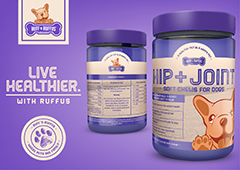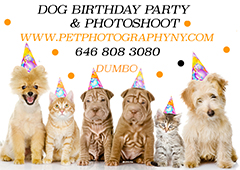What You Need To Know
About Grain-Free Dog Food
By Ann Hohenhaus, DMV, DACVIM (SAIM, Oncology), Animal Medical Center in NYC
When the U.S. Food and Drug Administration (FDA) began an investigation into diet-related heart disease in dogs, I suspect most dog owners were surprised to learn that a grain-free diet, one thought to be a healthy diet, may play a role in the development of heart disease in their dogs. More than two years later, no firm conclusions have been made regarding diet and heart disease.
A recent review article in the Journal of Animal Science argues there is not an association between diet and canine heart disease and calls for additional studies into the issue.
We asked Dr. Ann Hohenhaus, staff oncologist and internist, at the world-renowned Animal Medical Center in NYC to share important information you need to know about grain-free diets for your dog.
THREE MAIN TYPES OF HEART DISEASEVeterinarians diagnose three main types of heart disease in dogs.
- The most common is degeneration of the valves between the chambers of the heart, leading to congestive heart failure.
- The least common form is congenital heart abnormalities. This form of heart disease might be considered a birth defect.
- Sick cats prefer dark, quiet hiding places where they feel less vulnerable to threats and can take time to heal undisturbed. Cats who are not feeling well often hide in order to conserve energy or avoid pain.
- The third form of canine heart disease is an abnormality of the heart muscle called dilated cardiomyopathy (DCM) and is the form of heart disease being investigated by the FDA.
Canine DCM is a disease of a dog’s heart muscle and results in an enlarged heart that can be seen with a chest x-ray. The enlargement is due to thinning of the heart muscle, making the pumping action of the heart ineffective, leading to a buildup of fluids in the lungs and congestive heart failure.
DCM frequently is identified in certain breeds of dogs. Those that are typically more frequently affected by DCM include large and giant breed dogs, such as Great Danes, Boxers, Newfoundlands, Irish Wolfhounds, Saint Bernards, and Doberman Pinschers. There are also two small breed dogs prone to DCM, American and English Cocker Spaniels.
The FDA initiated the investigation into diet-related heart disease in dogs because veterinary cardiologists identified DCM in breeds not appearing on the list above. The cases that have been reported to the FDA have included Golden and Labrador Retrievers, Whippets, a Shih Tzu, a Bulldog, and Miniature Schnauzers, as well as mixed breed dogs.
The FDA investigation included interviews of families of recently diagnosed dogs They reported their dog’s diet contained potatoes or multiple legumes such as peas, lentils, other “pulses” (seeds of legumes), and their protein, starch and fiber derivatives early in the ingredient list, indicating that they are main ingredients. High levels of legumes or potatoes appear to be more common in diets labeled as “grain-free,” but it is not yet known how or if these ingredients are linked to cases of DCM.
 UNDERLYING CAUSE OF DCM
UNDERLYING CAUSE OF DCM
The underlying cause of DCM is not truly known, but in those breeds frequently affected, veterinary cardiologists suspect a genetic component. DCM cannot be cured, but medications may improve the dog’s condition. A diet change may help dogs eating a diet suspected to be associated with DCM, but many of these dogs will still require medications.
Because of data reported by the FDA, veterinarians continue to be concerned about heart health in dogs eating grain free diets. Better data collection is clearly needed since the FDA data depended on owner reporting of affected dogs and was not collected using a scientific method.
ASK YOUR VET ABOUT YOUR DOG’S DIETIf you are worried about your dog’s diet, check with your veterinarian before changing his diet. The FDA encourages dog owners and veterinary professionals to report cases of DCM suspected of having a link to diet by using the electronic Safety Reporting Portal or calling their state’s FDA Consumer Complaint Coordinators.











